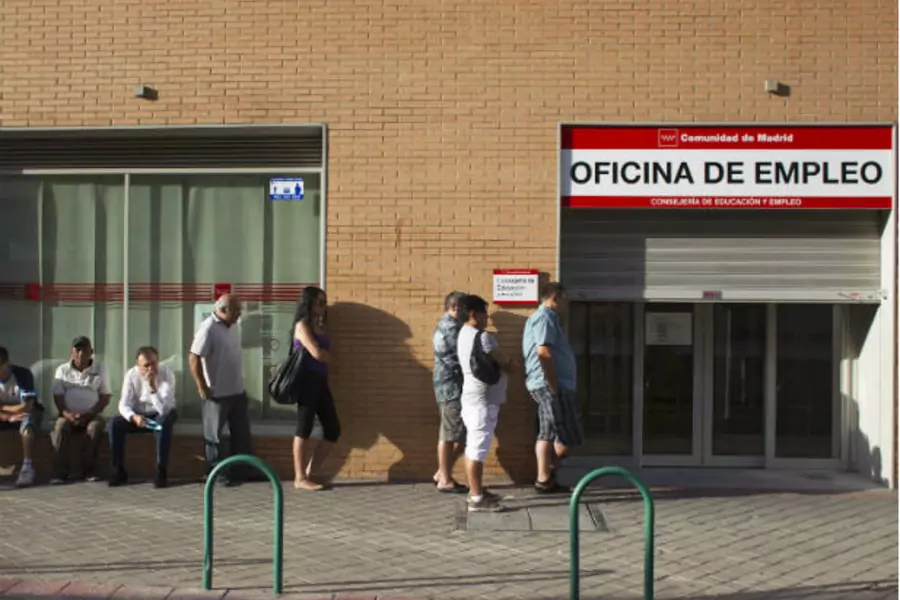Emerging Voices: Rolph van der Hoeven on a Global Social Contract to Follow the Millennium Development Goals

More on:
Emerging Voices features contributions from scholars and practitioners highlighting new research, thinking, and approaches to development challenges. This article is from Rolph van der Hoeven, professor of employment and development economics at the International Institute of Social Studies at Erasmus University. He outlines changes in the global landscape since the adoption of the Millennium Development Goals and calls for a new social contract to guide the next set of development aims.
One of the most important trends since the launch of the MDGs has been the rapid growth of large developing countries like China, India, and Brazil. Ironically it was not their growth, but instead the 2008 financial crisis, that forced the G8 to accept the G20, where these developing countries are represented, as a central forum for global financial governance. But this new representation of emerging power should not be limited to financial structures. In the post-2015 development agenda, traditional OECD donors cannot be in the driver’s seat anymore. The post-2015 agenda has to be a common undertaking by all countries and people in the world, for several reasons, as I explain in a recent background paper.
The MDGs were set as global targets. Unexpectedly, this has made them much easier to achieve due to the performance of a very few large, fast-growing countries. In fact, about three-quarters of the poor now live in middle-income countries, as various large countries that were low-income in 2000 have now “graduated” into middle-income status.
These developments have important implications on how to shape both the instruments and the targets of global poverty reduction. For most of the world’s poor, traditional development assistance has become irrelevant. Poor households in middle-income countries would benefit most from more equitable income distribution, improved access to social services, good jobs, and a well-functioning rights-based system that gives them access to government services and labor rights. It is important to ensure that the poor in middle-income countries can exercise their right to a greater share of the proceeds from the broader development of their societies. Clearly, a post-2015 system has to come to grips with issues of human development—economic, social, and cultural—and labor rights as well as with issues of inequality and redistribution.
To do so, a new development agenda must take account of the changing geopolitical landscape, the increasing diversity of developing countries, and the radically different development patterns of the countries where the global poor live. This implies a need to give much more attention to development at the national level. More global attention to national issues could also help to strengthen the special position of the least developed countries and the poor living in them.
Furthermore, the crisis of 2008 and the current challenges of reducing public and private debt make it amply clear that protecting the poor and the socially disadvantaged in industrialized countries has also become a serious social and political problem. MDG targets should therefore be considered for all countries, including the developed ones. Growing economic interconnectedness is creating hardships in developed countries, especially among workers displaced by outsourcing. It would be politically unwise to ignore this in a post-2015 system. Moreover, having targets for all countries would express better than does the current MDG system that all countries in today’s global world share a continuing responsibility for sustainable prosperity.
A post-2015 development agenda should therefore take the form of a global social contract in which the least developed countries would be guaranteed development aid and other concessional resources to achieve poverty reduction and inclusion in the world economy. At the same time, people in all economies (industrialized, emerging, and least developed) would be able to exercise economic, social, and labor rights to gain a better share in national development outcomes. They would also be guaranteed minimum safeguards for social protection during economic downturns.
The best way for countries to create such a social contract would be to renew the social contract that all countries agreed to through the Millennium Declaration in 2000, which is based on such fundamental values as freedom, equality, solidarity, tolerance, respect for the environment, and shared responsibility. Governments should also strengthen their own accountability and that of international organizations through new or improved mechanisms in which citizens of the world can freely express their opinions.
One might argue that a global social contract overloads the post-2015 development agenda, undoing the main strength of the current MDGs: their simplicity. However, as shown by global responses to recent crises in finance, nutrition, and the environment, simplicity compromises effectiveness. Indeed, traditional development aid interventions, as conceived by the MDGs, often do not provide an effective response to global challenges. Nor do they enable large numbers of the poor to move out of poverty in a changing world. A post-2015 system therefore needs to confront new challenges, which should be put in the context of promoting human development for the poor during economic crises and more favorable times as well.
More on:
 Online Store
Online Store